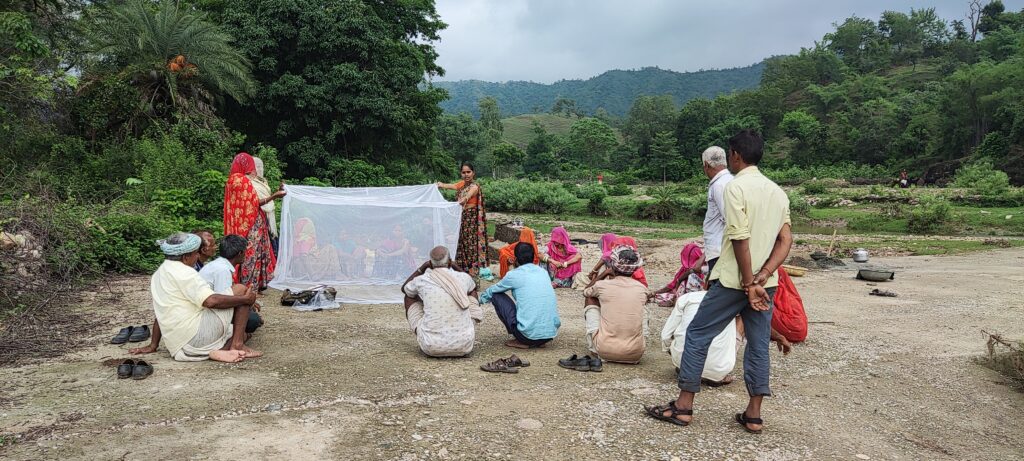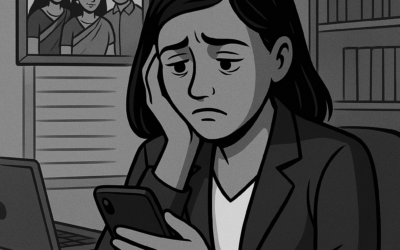“In another, more dynamic formulation to which I would subscribe, the individual self is a system of reverberating representational worlds – representations of his culture, primary family relationships and bodily life each enriching, constraining and shaping the others as they jointly evolve through the life cycle (Ross, 1994).”
“Patients underplay the cultural part of the self they believe will be too foreign for the analyst’s experience”
“In the transference-love, what they would rather stress in their closeness to the analyst, including the sharing of (not agreement with) what they believe are his scientific and artistic interests and religious beliefs. This intense need to be understood, paradoxically by removing parts of the self from the analytic arena of understanding…”
These excerpts are from Sudhir Kakar’s book, ‘Culture and Psyche: Psychoanalysis and India‘. He is an Indian psychoanalyst, and has written many books. While reading these, I drew a parallel between this text and my experience with our female community volunteers and health workers at Basic Healthcare Services (BHS), in terms of their way of responding during trainings and meetings. Here on, I’ll refer to them as team members.
During trainings, specially when I am not in the role of a participant but that of a trainer or observer, I often wonder if the participants’ views have actually changed or if they are simply saying what the trainer would like to hear. Do they respond with what they think would be an acceptable response, similar to acquiescing on self-report questionnaires? If their views have indeed changed, why do I sense dissonance in behaviour and thought?
There are two parts to them saying what we would like to hear. I’m italicising ‘them’ and ‘we’ because the othering is a reality here that cannot be denied, especially in cultural context. The first part is simple. If someone has been here for a long time and is bored with what they perceive as repetitive themes during trainings and meetings, they may go into an auto-pilot mode.
The other part could be a little more complex. The need to be understood is indeed intense in most of our team mates, like in all human beings. Hence, some of them will be quick to dismiss their own culture once they see us disapproving of certain aspects. Let’s take the babsi-bhopa example. Babsi refers of local priests and bhopa means faith healers here.
Irrespective of one of the health workers, Jhumpi’s* positive experience with bhopas, if she is fully dedicated to her work here at BHS, she will naturally have the desire to feel understood and accepted by others. Here, others refers to those in the organization who may not believe bhopas to be scientific and safe. The perception of others is also related to power. In this case, Jhumpi is a woman from a rural area while a lot of her colleagues including me come from cities and are in authoritative positions in the organizational hierarchy.
If I may see it as a parent-child relationship, Jhumpi (as a child), observes us (parental figures) disapproving of certain ways of being or even considering other alternatives as superior. In this case, bhopas are thought to be inferior as compared to health institutions. Hence, she will initially present in her speech what she knows us to be able to digest. Once we nod our heads and respond in a way that makes her feel understood, she will also let it seep in.
If someone understands me through X but not through Y, I will of course use X repeatedly because I have an intense need to feel understood. With repetition and familiarity, X becomes the new normal and a superficial way of life altogether.
I witnessed this happening in a recent gender training too. The trainer was an outsider with years of experience. Instead of asking direct questions and opinions, she played a game. In an activity, she pretended having an ‘incorrect’ opinion. Encouraged by this, participants felt that it was acceptable to hold that opinion, and they presented arguments in support of their views. For me, who was observing all this, it shed light on deep rooted notions that we aren’t questioning, reflecting, or changing.

After contemplating all this, I come to an abrupt pause, wondering how applicable this is to me.
One example is when I spend time with teammates and create a space where they feel comfortable enough to free associate. Whether they speak among themselves or directly to me, I refrain from expressing my own judgements. A part of me feels conflicted about this. I question whether I should open discussions and guide them toward the right path. But another part recognizes that if I speak my mind, it would only silence them and interrupt their beliefs. These deeply ingrained, primed beliefs can’t change overnight, of course.
From my position, I perceive myself as the ‘analyst’ and them as the ‘patient’ – in context of the quote in the beginning. Me as the ‘parent’, them as ‘children’. Even from their standpoint, they mostly view me as the analyst. It’s important to note the pedestal given to analysts, parents, doctors, or any authority figure. There’s an inherent imbalance of power in this relationship. While the patient also possesses significant power, for now, let’s focus on the analyst.
Simply by being outsiders, educated, or from a dominant culture, we are seen as and put ourselves in the position of the analyst. “I am here to tell you” even if that’s not through an authoritarian position. After reaching this point, I also begin to question the term ‘change maker.’ Changed by whom, to what and why?
I do have more power over the community volunteers and health workers. They come in submission, while we lead the way. This thought made me uncomfortable. I pause to revisit the last line of the quoted text from Sudhir Kakar. Why is it that we don’t feel the need to remove parts? If we believe that parts of us are not in their arena of understanding, we simply strive to expand their arena of understanding.
So, no matter how we perceive it, are we constantly in a top to bottom flow situation? These thoughts are raw and difficult for me to detach from. I need some distance from my current reflections to revisit them from a different standpoint. Meanwhile, if you can clearly see what I am missing, I would love to discuss this further.
*Name changed to maintain confidentiality




0 Comments